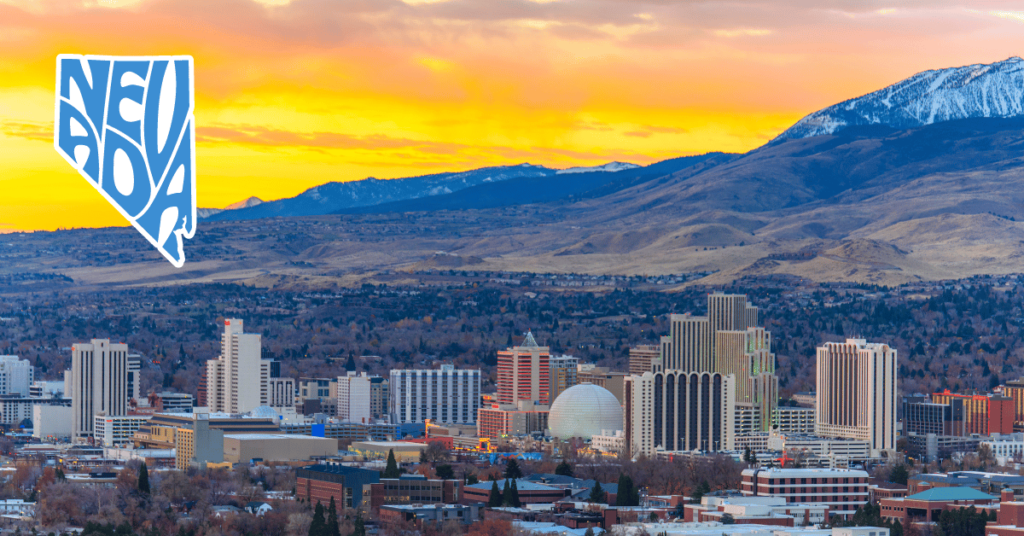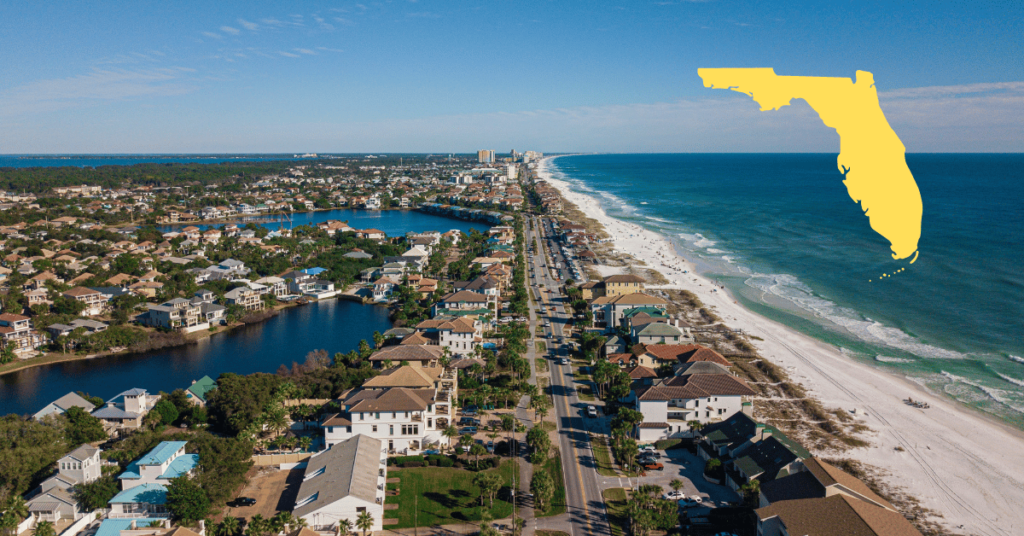Nevada is a popular retirement destination, particularly due to its lack of a state income tax. But beyond that attractive feature, what else does Nevada offer retirees?
This article will explore the tax benefits, cost of living, healthcare, and lifestyle options available to retirees in Nevada, helping you decide if it’s the right state for your retirement.
No State Income Tax: A Major Benefit
One of Nevada’s most appealing features for retirees is its lack of state income tax. This benefit applies to all forms of income, including Social Security, pensions, 401(k) distributions, and IRA withdrawals. For retirees living on fixed incomes, the absence of state tax can make a significant difference in the affordability of retirement.
Impact on Retirement Income
- Social Security Benefits: Since Nevada doesn’t tax Social Security income, retirees can keep more of their benefits.
- Pension and IRA Withdrawals: Private and public pensions, along with 401(k) and IRA distributions, are free from state taxes.
- Capital Gains: Nevada also does not impose taxes on capital gains, which is beneficial for retirees with investment income.
Cost of Living in Nevada

While the absence of state income tax is a major draw, retirees should also consider the overall cost of living in Nevada. The state’s cost of living is slightly higher than the national average, with housing being a significant factor. However, compared to neighboring states like California, Nevada remains more affordable.
Housing Costs
Housing costs vary widely depending on the region. Popular retirement areas like Las Vegas and Reno tend to have higher property prices, while rural parts of Nevada offer more affordable housing options.
- Las Vegas: Known for its entertainment and amenities, Las Vegas attracts many retirees, but housing can be pricier in this bustling city.
- Rural Areas: For retirees looking for quieter, more affordable living, rural Nevada offers lower housing costs and a slower pace of life.
Other Living Expenses
- Healthcare: Nevada’s healthcare costs are roughly in line with the national average, but access to care can vary, particularly in more rural areas.
- Utilities: Utility costs, particularly for air conditioning during Nevada’s hot summers, can be higher than in cooler states.
Healthcare for Retirees
Nevada’s healthcare system has improved in recent years, but access to quality care can still be a concern, especially in rural areas. Las Vegas and Reno have numerous healthcare facilities, but smaller towns may have limited options.
Medicare and Supplemental Plans
Nevada participates in the Medicare program, and retirees can choose from various Medicare Advantage and supplemental insurance plans to meet their healthcare needs. It’s important for retirees to explore their options and choose a plan that offers adequate coverage for both routine and specialized care.
Proximity to Healthcare Facilities
- Urban Areas: Las Vegas and Reno offer a range of healthcare services, including specialized care for retirees.
- Rural Areas: Retirees in more remote areas may need to travel for healthcare, which is something to consider if access to immediate care is important.
Lifestyle and Recreation

Nevada offers a unique lifestyle for retirees, combining the entertainment and excitement of urban areas like Las Vegas with the peace and tranquility of rural living. Whether you prefer the bustling city life or the quiet of the desert, Nevada has something for everyone.
Outdoor Activities
Nevada’s diverse landscape provides plenty of opportunities for outdoor activities, including hiking, camping, and exploring national parks like Red Rock Canyon and Great Basin National Park.
- Mild Winters: Nevada’s desert climate offers mild winters, making it ideal for retirees who want to avoid cold weather.
- Summer Heat: While the summers can be extremely hot, especially in southern Nevada, the dry climate makes it more manageable than humid heat.
Entertainment and Amenities
- Las Vegas: For those who enjoy a vibrant lifestyle, Las Vegas offers world-class dining, entertainment, and shopping.
- Gambling: While gambling is legal throughout the state, it’s not a requirement to enjoy Nevada. Many retirees appreciate the low-stakes entertainment and the option to participate or not.
Tax-Friendly Retirement Beyond Income Tax
While the lack of state income tax is a significant benefit, Nevada also offers other tax advantages for retirees.
No Inheritance or Estate Taxes
Nevada does not impose any inheritance or estate taxes, making it a favorable state for retirees who want to pass their assets to heirs without additional state tax burdens.
Property Taxes
Property taxes in Nevada are relatively low compared to other states, especially California. However, they can vary based on location and property value. Retirees should research property taxes in their specific area of interest.
Considerations for Retiring in Nevada
While Nevada offers many benefits, there are a few considerations to keep in mind:
Climate
The desert climate means extremely hot summers, especially in southern Nevada. Retirees who are sensitive to heat may want to consider northern areas of the state or ensure their homes are equipped to handle high temperatures.
Rural vs. Urban Living
Urban areas like Las Vegas and Reno offer more amenities, healthcare options, and entertainment, but they also come with higher living costs. Rural areas provide affordability and tranquility but may lack access to certain services and conveniences.
Conclusion
Nevada offers a tax-friendly environment, affordable living options, and a range of lifestyle choices for retirees. With no state income tax, low property taxes, and mild winters, it’s an attractive option for non-traditional retirees seeking a unique blend of city life and outdoor adventure. However, retirees should weigh the benefits against potential challenges like healthcare access in rural areas and the summer heat before making their decision.
If you have any further questions feel free to comment down below or contact retiresmart for any help!
FAQs
Does Nevada tax retirement income?
No, Nevada does not tax any form of retirement income, including Social Security, pensions, and IRA withdrawals.
What are the property taxes like in Nevada?
Nevada’s property taxes are relatively low compared to other states, but they can vary by region. Urban areas tend to have higher property values, which can result in higher taxes.
Is healthcare easily accessible in Nevada for retirees?
While healthcare is readily available in urban areas like Las Vegas and Reno, retirees in rural areas may have to travel for specialized care.
What are the best areas to retire in Nevada?
Popular areas include Las Vegas for its entertainment and amenities, and rural areas for retirees seeking a quieter and more affordable lifestyle.




